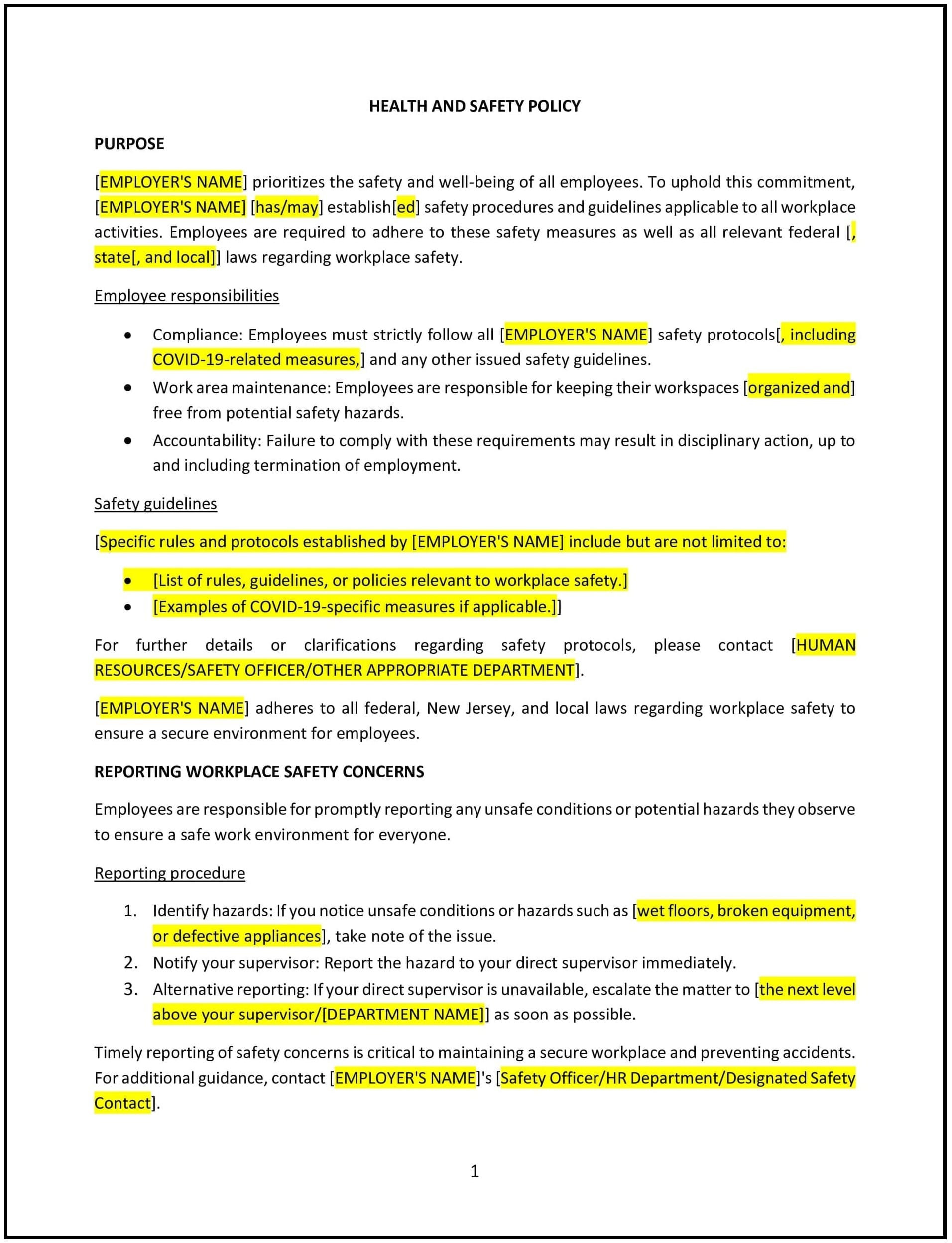Health and safety policy (New Jersey): Free template
Got contracts to review? While you're here for policies, let Cobrief make contract review effortless—start your free review now.

Customize this template for free
Health and safety policy (New Jersey)
A health and safety policy helps New Jersey businesses create a safe and secure work environment by outlining procedures for hazard prevention, emergency response, and workplace safety expectations. This policy establishes guidelines for risk management, employee training, and maintaining a workplace free from hazards. It also sets expectations for reporting incidents and maintaining safety equipment.
By adopting this policy, businesses in New Jersey can reduce workplace accidents, protect employees, and promote a culture of safety.
How to use this health and safety policy (New Jersey)
- Identify workplace hazards: Conduct regular risk assessments to identify potential hazards and establish controls to minimize risks.
- Establish emergency response procedures: Outline evacuation routes, fire safety measures, first aid locations, and protocols for medical emergencies.
- Define safety responsibilities: Assign roles for safety compliance, such as designated safety officers, managers, or HR representatives.
- Provide safety training: Ensure employees receive training on workplace hazards, equipment handling, and emergency protocols.
- Set reporting procedures for incidents: Require employees to report workplace injuries, illnesses, or hazardous conditions immediately.
- Maintain safety equipment and facilities: Ensure protective gear, first aid kits, fire extinguishers, and emergency exits remain accessible and functional.
- Promote wellness and injury prevention: Encourage ergonomic practices, proper lifting techniques, and safe use of tools or machinery.
- Review and update: Regularly assess workplace safety practices and update policies as necessary to reflect new risks or industry best practices.
Benefits of using this health and safety policy (New Jersey)
This policy provides several benefits for New Jersey businesses:
- Reduces workplace injuries: Helps prevent accidents by implementing safety measures and employee training.
- Protects employees and customers: Establishes procedures for maintaining a safe and healthy workplace.
- Improves operational efficiency: Minimizes disruptions caused by workplace accidents or health concerns.
- Strengthens employee confidence: Encourages a safety-first mindset and provides resources for employees to report concerns.
- Supports risk management efforts: Reduces potential liabilities related to workplace safety issues.
Tips for using this health and safety policy (New Jersey)
- Communicate the policy clearly: Ensure employees understand safety expectations and emergency procedures.
- Conduct regular safety training: Provide ongoing education on hazard awareness, injury prevention, and equipment use.
- Monitor workplace conditions: Perform regular safety inspections and address concerns promptly.
- Encourage reporting: Create a culture where employees feel comfortable reporting unsafe conditions without fear of retaliation.
- Review the policy regularly: Update the policy to reflect workplace changes, employee feedback, and New Jersey-specific safety regulations.